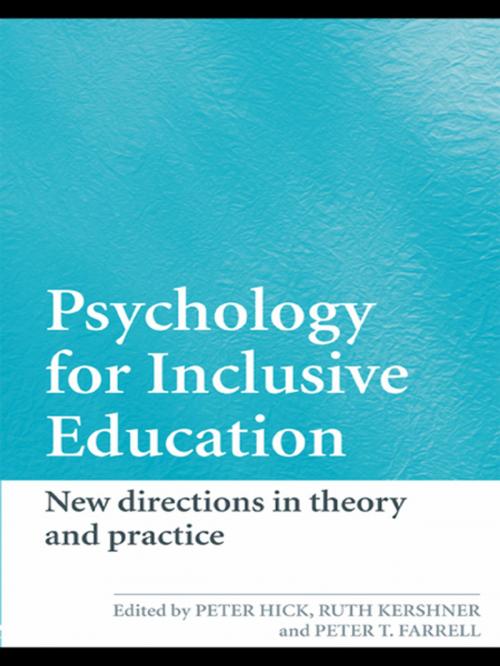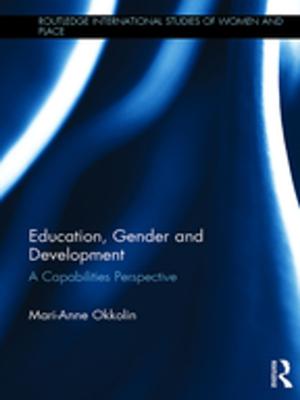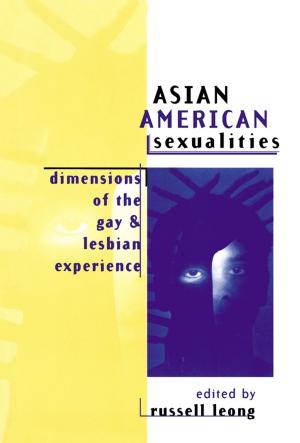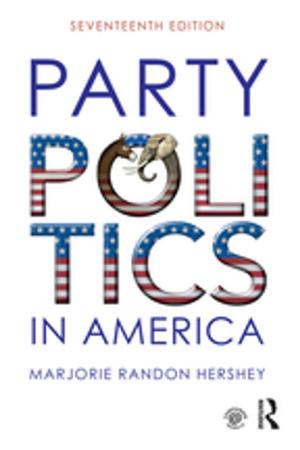Psychology for Inclusive Education
New Directions in Theory and Practice
Nonfiction, Health & Well Being, Psychology, Education & Training, Reference & Language, Education & Teaching, Special Education| Author: | ISBN: | 9781134167890 | |
| Publisher: | Taylor and Francis | Publication: | September 25, 2008 |
| Imprint: | Routledge | Language: | English |
| Author: | |
| ISBN: | 9781134167890 |
| Publisher: | Taylor and Francis |
| Publication: | September 25, 2008 |
| Imprint: | Routledge |
| Language: | English |
What can psychology offer inclusive education? Traditionally, special education has looked to psychology for many of its theoretical resources and practical strategies. While those seeking to promote more inclusive education have tended to see psychology and psychologists as part of the problem by providing a rationale for segregation. However, in practice many psychologists today are developing inclusive ways of working, and are paying attention to psychological theories that underpin inclusive education.
Psychology for Inclusive Education reframes the contribution of psychology in terms of its relevance to inclusion and will show how psychological theories of learning and human development are compatible with inclusive education. Part 1 explores psychological theories relevant to understanding inclusive education and Part 2 looks at how psychology can contribute to promoting more inclusive education in practice. Chapters cover:
-
how psychologists can collaborate with teachers for inclusive solutions
-
Vygotsky's theories of learning and their significance for inclusion
-
the challenge of developing pedagogies for inclusion
-
sociocultural understandings of learning in inclusive classrooms
-
the role of emotion in learning and inclusion
-
cooperative learning and inclusion
-
the challenges and tensions of inclusion and high standards for schools
-
the practice of dynamic assessment as an inclusive alternative to IQ
-
social justice and inclusive psychology
Bringing together a highly distinguished list of international contributors from the UK, USA and South Africa and including practising educational psychologists, this book will link theory to practice in schools and classrooms. International in focus and at the very cutting edge of the field, this is essential reading for all those interested in the development of inclusive education.
What can psychology offer inclusive education? Traditionally, special education has looked to psychology for many of its theoretical resources and practical strategies. While those seeking to promote more inclusive education have tended to see psychology and psychologists as part of the problem by providing a rationale for segregation. However, in practice many psychologists today are developing inclusive ways of working, and are paying attention to psychological theories that underpin inclusive education.
Psychology for Inclusive Education reframes the contribution of psychology in terms of its relevance to inclusion and will show how psychological theories of learning and human development are compatible with inclusive education. Part 1 explores psychological theories relevant to understanding inclusive education and Part 2 looks at how psychology can contribute to promoting more inclusive education in practice. Chapters cover:
-
how psychologists can collaborate with teachers for inclusive solutions
-
Vygotsky's theories of learning and their significance for inclusion
-
the challenge of developing pedagogies for inclusion
-
sociocultural understandings of learning in inclusive classrooms
-
the role of emotion in learning and inclusion
-
cooperative learning and inclusion
-
the challenges and tensions of inclusion and high standards for schools
-
the practice of dynamic assessment as an inclusive alternative to IQ
-
social justice and inclusive psychology
Bringing together a highly distinguished list of international contributors from the UK, USA and South Africa and including practising educational psychologists, this book will link theory to practice in schools and classrooms. International in focus and at the very cutting edge of the field, this is essential reading for all those interested in the development of inclusive education.















